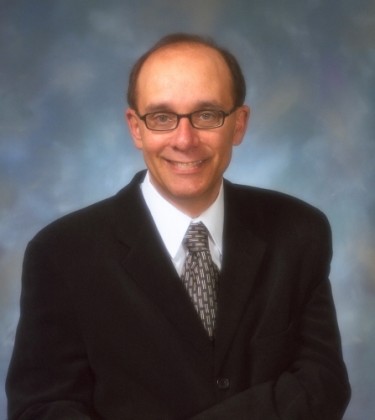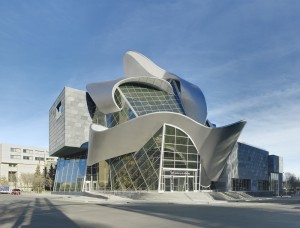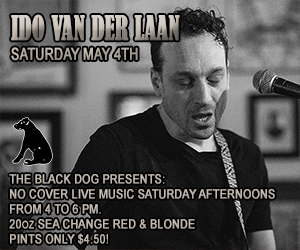COMMENT: Stephen Mandel’s big dreams had high price
Posted on May 21, 2013 By Jeremy Loome Front Slider, News, Politics
 The decision by Mayor Stephen Mandel not to run for a fourth term is probably sensible on a personal basis. For all his shortcomings, he’s one of the hardest working civic leaders Edmonton has ever had. And now he’s 67 years old.
The decision by Mayor Stephen Mandel not to run for a fourth term is probably sensible on a personal basis. For all his shortcomings, he’s one of the hardest working civic leaders Edmonton has ever had. And now he’s 67 years old.
The timing still strikes me as cowardly. The two showpieces of his administration – the downtown airport development and the new arena – are nowhere near done. The latter will doubtless happen no matter how much evidence there is that the financing and location are both terrible ideas.
Why? Because people are selfish and stupid, that’s why. If they love hockey, and have a gung-ho personal ethos about business and development, that’ll over-ride any rational presentation of evidence showing how badly other cities have fared from similar redevelopments, or how it is, without a doubt, the most grotesque financial arrangement in the NHL. It’s our nature as humans to support the thing we want, particularly if we’re financially secure enough to not suffer from the outcome, not to back the thing we – or others – need.
And really, that’s one of the storylines of Mandel’s tenure. Bigger was always better:
- Like blowing millions of dollars on an Expo that never happened.
- Like backing the Albert Speer-like slab of concrete that is Winston Churchill Square down everyone’s throats, sans trees, on the argument that the new piping under it was going to cost two-thirds as much even without the changes. Unless they’re forcing an event in there, the place often looks like a skateboard park hit by a neutron bomb. Where skateboarding is not allowed.
- Like your tax bill, which progressed to a new level: 40% higher than when he took office.
- Like urban sprawl, which has gone unchecked during his tenure, to the point that we’re now one of the nation’s worst offenders, making future capital servicing and infrastructure costs astronomical.
- Like the array of additional cost services at City Hall that used to be part of your taxes.
- Like effectively giving $400 million to billionaire Daryl Katz. Oh sure, we own the arena, but it’s in less-than-name-only. He gets every dime of revenue out of it save for a few weeks per year and we get to try and pay it off. Some calculations, based on the generally unproven and unpredictable nature of Community Revitalization Levies put it at anywhere from 25 to 50 years … in which case it will likely be decommissioned before we’ve even paid for it. As for the predicted cost of $480 million, multiple studies show initial construction projections (and $450 million, the original 2008 estimate, is actually MORE than $480 million with inflation considered) are typically off by 25% in the sports facility game, as lowball deals get done.
 Mandel has done a lot of good for the city, too. He’s been aggressive about promoting us nationally and internationally. He has battled to catch up with the decades of infrastructure neglect left by his predecessors; he’s even tried to find compromises that would improve snow clearing. These were all hot-button areas others left alone, excepting for Bill Smith’s penchant for travel.
Mandel has done a lot of good for the city, too. He’s been aggressive about promoting us nationally and internationally. He has battled to catch up with the decades of infrastructure neglect left by his predecessors; he’s even tried to find compromises that would improve snow clearing. These were all hot-button areas others left alone, excepting for Bill Smith’s penchant for travel.
But Mandel also did a lot of power base building. He angled to the political centre-right to get infrastructure built, and on the left, he stroked the arts community’s hair like the supportive boyfriend in a Jennifer Aniston movie, helping land an $80 million art gallery that’s open six hours a day. A million-dollar Christmas tree ornament statue isn’t doing us any favors financially, either.
It’s funny, but whether your politics generally shade right or left – or swing one way or the other massively – the one thing everybody agrees on is the need for able financial administration. Mandel displayed none of that. Yes, his brash promotion did us lots of good. But it also did us a lot of harm.
 About 40 years ago now, a journalist named Robert Caro wrote a book called “The Power Broker,” about a New York City urban planner named Robert Moses. Caro won the Pulitzer Prize for his meticulous portrait of how a bureaucrat had built himself a small empire and how that, as empires do, it crumbled around the edges, the victim of Moses’ enormous self-confidence, absent the research to support going ahead with his ideas. Moses, Caro explained, had learned from years in politics that passion always trumped research, and that he if had an idea, he might as well just push ahead and do it.
About 40 years ago now, a journalist named Robert Caro wrote a book called “The Power Broker,” about a New York City urban planner named Robert Moses. Caro won the Pulitzer Prize for his meticulous portrait of how a bureaucrat had built himself a small empire and how that, as empires do, it crumbled around the edges, the victim of Moses’ enormous self-confidence, absent the research to support going ahead with his ideas. Moses, Caro explained, had learned from years in politics that passion always trumped research, and that he if had an idea, he might as well just push ahead and do it.
Moses also knew that, years later, people only celebrate the successes. The political defeats are forgotten with time. It’s analogous to the far-right view of the Vietnam War, which is that the U.S. won it. You might not have thought that in 1975, when it was ending, or in 1985, when Willem Dafoe was sinking to his knees in a rice paddy as the Christ-figure in the movie Platoon … but in 2013, there’s a McDonald’s on every other corner in Hanoi, and despite its best efforts to act totalitarian about something occasionally, Vietnam is about as communist as a Quizno’s. The influence, the effect, of all that rah-rah democracy was felt.
But it sure cost a hell of a lot.
Caro told the New York Times why he spent years pursuing and writing the book, how the idea came to him after attending an urban planning lecture at Harvard.
“They were talking one day about highways and where they got built … and here were these mathematical formulas about traffic density and population density and so on, and all of a sudden I said to myself: ‘This is completely wrong. This isn’t why highways get built. Highways get built because Robert Moses wants them built there.’ If you don’t find out and explain to people where Robert Moses gets his power, then everything else you do is going to be dishonest.”
Many of the things Stephen Mandel built needed to be built. But – as with Moses’ proposed bridge across Long Island Sound that would have been a financially absurd maneuver – many of them didn’t. Sometimes big dreamers are good for us, and they’re always exciting to be around. But if in the end, the pricetag for all of it is a nightmare, it’ll be ratepayers and residents picking it up the cheque. Asking for fiscal prudence doesn’t mean limiting governance. It just means limiting politicians – and especially their imaginations. If we haven’t learned that yet about democracy, what have we learned?
To those who look at Mandel’s progressivism as a force unto itself, rather than objectively assessing each project on its own merits and comparing costs and returns to other jurisdictions, I would suggest this: When the future of a community and its cost of living is at issue, it’s not enough for a man to say he threw paint at a blank canvas, and that 50% of the time, it produced art.













